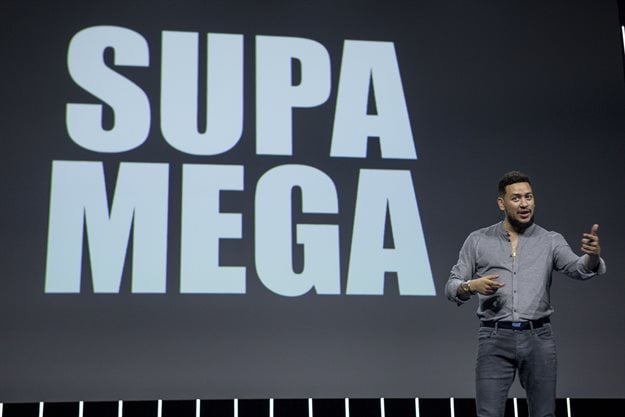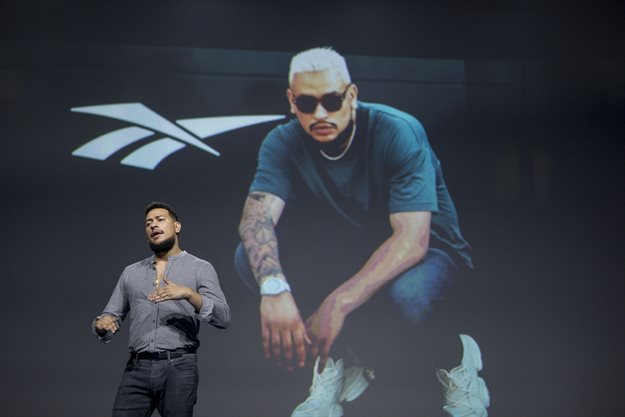#Loeries2019: AKA on breaking boundaries and building a risky brand

First, he took us back 10 years, to the time of when South Africa rappers like POC, Cashless Society, Proverb and HHP where big influences in the industry and his life. This was a time when hip hop, in general, was frowned upon in SA and thought to be a niche, American wannabe subculture.
Even though the industry was a tough one to be in, these were some of the pioneers that led to the hip-hop music industry becoming the multi-billion-dollar industry it is today.
How hip hop gave him an identity
As a young man, he saw a gap for himself in the industry as the culture began to shift, and he decided to pursue it because hip hop spoke to him the way no one and nothing had ever spoken to him before, giving him an identity.
AKA says the hip-hop bug bit him in high school, and he started a group with his friends with the aim of releasing an album and getting girls' phone numbers. Besides this, he says he wanted to show people they had something to say.
By the time he matriculated and had to go out into the big bad world, he says hip hop had progressed and the stigma the music had previously carried of being unpatriotic had gone - rappers were making music in their own languages and becoming well known for it. He realised that the time was right for him to do his thing.
The tools used in building the AKA brand
First and foremost, AKA is a musician, but he has also built a brand as AKA.
He describes the first music video he made for Victory Lap, saying he wanted to use it to let people know that English rappers could be successful. This video was released between 2010-2012 when things were really opening up in the industry, and social media was exploding.
Knowing he had to use social media to get his name out there and grow and develop his brand, he says he decided to use this platform to create drama and issues, inciting hype which drew people to his brand and his music. He explains how his Twitter rants would give his manager nightmares when it came to managing his image and career, and admits that he didn’t really get it until he understood that the people on these platforms were actually watching him and he had to take responsibility for what he was showing them.
Going the distance with a controversial brand
According to AKA, hip hop is controversial. It can be a risk and even be dangerous to partner with this type of brand, but he says this is what sets him apart.
“Who doesn’t like a little danger?” He asks, describing cookie-cutter-like wholesome individuals and brands as inorganic. He says it’s not in him to play it safe, but that he wears his heart on his sleeve and is not afraid to be himself. His biggest fear is people feeling indifferent towards him.
He wants to be loved or hated, not anything in between.Due to his out-there and admittedly often-arrogant attitude, he says he found that brands did not want to go the distance with him in the sense that they would not partner with him for long periods of time or commit to supporting his brand.
Here he introduced one of his golden rules of advertising, that not all data can be tracked and there are intangible aspects that you can’t put your finger on or explain how it works. “If you can stay consistent and honest, you could resonate with an audience and ride that wave,” he advises while explaining that the most important thing he did in building his brand was to stay relevant and top of mind.
AKA has always been obsessed with breaking boundaries and says his favourite brands are challenger brands, as they are the ones that have less to lose and more to gain, thinking outside the box to eat into their competitors’ market share. He used Jay-Z partnering with brands like Tidal, Samsung and Puma instead of their ‘superior’ competitors as an example.
He’s used this as a guide in his own career and aimed to partner with a brand that is different to the norm, as having the potential for growth on both sides of the partnership is important to expand on the partnership over time. This is something that is achieved by finding meeting points with a brand and growing together in those points.
Finding the right fit
Having signed on as a brand ambassador partnership with Reebok just over two years ago, he says it is the perfect fit for him due to the fact that it is a brand with culture and heritage, which ties in with the history of hip-hop music.
He says Reebok needed someone to work with to bring it back to its past strength and vibes, and hip-hop was the perfect match because it sells due to the fact that it is embedded in a lifestyle and culture.
At this point, AKA announced a huge achievement for both himself and Reebok – this October will see the release of his own sneaker!

Next, he described another partnership he has with Cruz vodka, a challenger brand that identified him as an anchor for their brand.
This partnership offers him equity in the Cruz brand and has also led to the introduction of watermelon as his own flavour of vodka being added to the product line.
“So, who’s in?” He asks the audience, referring to taking a chance on risky brands like him. “Ideas are free, but without the industry’s support they can’t be brought to life,” he says.
The future is in the hands of the youth
Ending off his presentation on an inspirational and intriguing note, AKA pointed out that the youth will always set the tone of what’s to come, and the advertising industry needs to listen to those voices because they know what they are talking about.
“We’re not going anywhere,” he says, imploring industry players to realise that while they have a responsibility towards their clients, they also have a responsibility to uplift and empower each other.



























